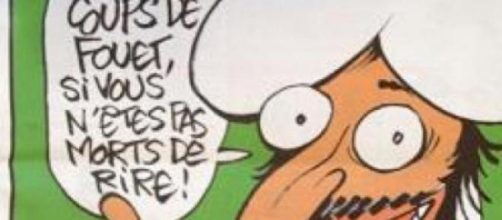The French satirical magazine Charlie Hebdo, has been the unfortunatevictim of an terrorist attack which has claimed the lives of at least 12 peopleand wounded 5.
The magazine, which has a long history of irreverent humour,often aimed at religion, was attacked by three gunmen at 11:30am, on the morning of the 7th of January, armed with AK rifles, a Kalashnikov, andshotguns, who are also believed to have fired on police. Two entered the building to carry out the attack, while the third drove a car to the scene. The gunmen escaped before abandoning their vehicle and hijacking a citizens car by force.
Although there identities have not been officially confirmed, videotaken of the incident has recorded the gunmen shouting “Allah Akbar” ("God is Great") and “Wehave avenged the Prophet Muhammed!”. Eyewitness claims are that the gunmen claimedto belong to Al Qaeda.
Because of this, it is believed the attacks may have hadsomething to do with a 2011 cover of the magazine which depicted the Islamicprophet Muhammed in cartoon form. This led in that same year to the petrol-bombingof the magazines office.
It should also be mentioned that Charlie Hedbo's cover this week featured Michel Houellebecq, the author of Soumission (Submission), a controversial book which portrays France in 2022 run by an Islamic president.
Various world governments and the Vatican have condemned theattacks. French imams spoke in the reference to the attack, calling it “a vileattack, criminal and unpardonable”.
Francois Hollande, the president of France, has also condemned the attack as "an act of exceptional barbarism" and has called for an emergency cabinet meeting.
The victims include the Charlie Hedbo journalists Stephane Charbonnier, the editor. Bernard Maris, a writer and economist who contributed regularly to the magazine, and three cartoonists. Jean Cabut, Georges Wolinski, and Bernard Verlhac.
This is not the first time satire has been the victim of Islamic retribution. In 2006, Charlie Hedbo republished the controversial Danish cartoons from the publication Jyllands-Posten, also depicting the Muhammed in a less then favourable manner. This too was met with widespread anger from the Muslim community.

